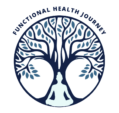Do you struggle with chronic and recurrent health issues?
It is well known that chronic stress, trauma and adverse childhood events predisposes us to chronic disease.
It is also true that how we live our lives is closely related to our health and there are many areas that we’re neglecting from a physical, mental, and spiritual point of view.
What are some things we can do to help ourselves?
Finding purpose in life can lead to better recovery from stress and trauma
Have you ever noticed how someone who has something to fight for is more driven to succeed?
A similar thing happens when we have a purpose in life. Our bodies and minds are more likely to work together to heal. Be it from chronic conditions or any sort of ailment, when there is a purpose there is determination to get back on your feet. Your body is intrinsically linked to your mind and it knows when healing needs to occur.
This article by BendHealth is a great source of detailed information regarding the connection between having a purpose and healing.
Make time to discover who you are
It can be quite challenging to make your way through all the noise going on in your life. From the moment you wake up and check your phone, the external influences have started. You have several tasks already assigned to you or multiple emails that need immediate attention. We have too many responsibilities and not enough time for ourselves.
This is the reality that we’re all living in. A fast-paced, hectic, world that seems to be moving too fast for our own good. This affects our physical and mental health.
If you’re living with such a tight schedule, how could you possibly find any time for self-discovery? There are a few actions we can take to help:
- Time management
- Prioritization
- Organization
Time Management
It’s a common feeling that we do not have enough hours in the day to accomplish our tasks. Some might do a better job than others, but we never seem to have enough time in the day.
The science of time management goes beyond how you manage your time. It is also about how much of your time you use for tasks and how much you delegate. This article by Udemy offers some detailed tips on how to stop wasting time. I also recommend you utilize the Pomodoro technique which I find is the easiest way to manage my time.
Prioritization
This is a very powerful thing to consider and it involves the idea of knowing what you can do now, what can wait, and how you can delegate. That said, you can’t delegate everything and that’s when prioritization is needed the most.
Organization
Finally, getting organized is essential if you want to start practicing time management and prioritization on a regular basis. Doing this might seem easy for a few days or even a week, but being consistent over a long-term is the key.
This is why it’s important that you take your time and develop an organized process to create a schedule for your activities to ensure the best outcome.
Now you’re ready to invest time in yourself. The information below can prove to be very valuable for your journey to self-discovery.
Carve out time for self-reflection
Find moments of solitude, journal, or meditate. Disconnect from distractions and explore your thoughts and emotions. A good way to start is by shutting off all phones, computers, TV’s, etc.
Just starting with 15 minutes of complete detachment can be quite helpful. This step is crucial for success.
Delve into your values and beliefs
Examine what truly matters to you. Identify principles that resonate deeply. Aligning with your values leads to an authentic and purposeful life. This is all about recognizing what you truly believe to be of value in life. Think about the things that you stand for and learn to associate them with what you do in life.
Discover your passions and interests
Explore activities that bring you joy. Notice moments of enthusiasm and engagement. Nurturing your passions reveals your true self. This takes us back to delving into your values and beliefs. That step is important as it will help you determine the paths you can take in life. This allows you to do things you feel passionate about
Practice self-acceptance
Embrace your strengths, weaknesses, and quirks without judgment. Accept all aspects of yourself, even perceived flaws. Embracing your authentic self requires self-love and kindness.
It is very important not to fall into the mistake of accepting your flaws without seeking improvement. If you accept your flaws, you need to actively find ways to work them out. This is the only way to grow.
Acceptance without progress is of little value. It is just a step forward in the journey, not the end goal. An article from Positive Psychology goes into this with more depth.
Seek new experiences
Step outside your comfort zone. Travel, try new activities, and meet diverse people. Novel experiences expand your perspective and foster self-discovery. Also, the moment you allow yourself out of your comfort zone, you will start to see new sides of yourself you have never had the chance to witness.
It is like unveiling a brand-new tech gadget and learning all the amazing things it can do. Your mind works in a similar way, only allowing you to discover new things about yourself when you’re in a specific situation. You will never truly know yourself unless you allow new experiences to tap into different emotions and feelings.
Surround yourself with supportive relationships
Cultivate connections that encourage personal growth. Engage in deep conversations, and share aspirations with trusted friends or mentors. Moreover, you will benefit from not allowing negative people to have a place in your life.
Practice mindfulness
Observe thoughts and emotions without judgment. Cultivate self-awareness. Mindfulness helps clarify desires, values, and purpose. To be in the moment does not mean you’re not preparing for the future, it means to fully immerse yourself in the experiences you’re having now. This article from Mindful explains all the details you need regarding mindfulness.
Embrace growth and change
Self-discovery is continuous. Accept natural growth and change. Remain open to possibilities, adapting, and gaining deeper insights into your authentic self. It is easy to run away from change because we feel that it’s tied to uncertainty. The truth is that even the comfort zone is uncertain and full of twists.
I love this resource from My Soul Sanctuary.
Final thoughts
These are all great ways to start your journey of self-discovery, but keep in mind that this is an endless process. You’re always going to discover new things about yourself and this is the most exciting aspect of life. You can find happiness & healing regardless of where you are in your journey.
“Daily action ignites the momentum that creates lasting change” – Tony Robins

